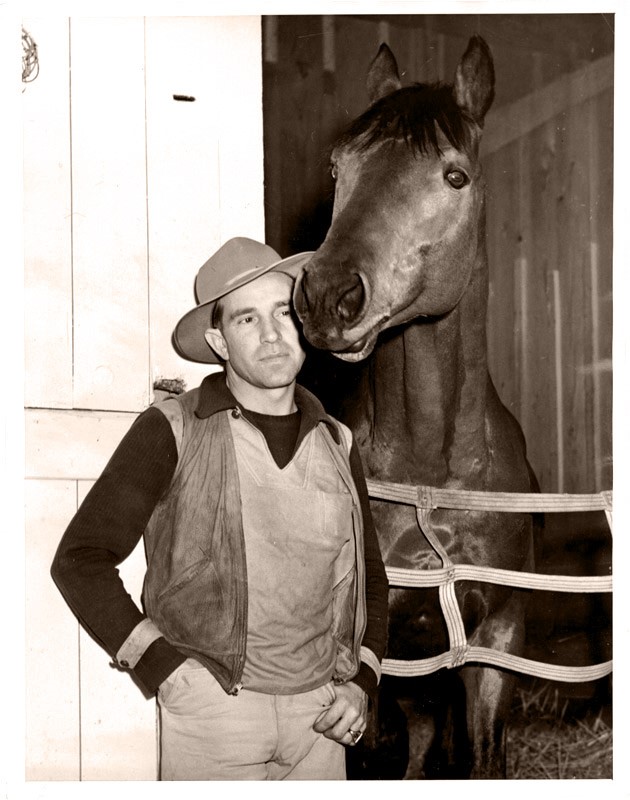
The Iceman’s Run: Advanced NIH Grant Writing and Personal Coaching Program for Winning NIH Grants Spring 2020
The Iceman’s Run: Advanced NIH Grant Writing and Personal Coaching Program for Winning NIH Grants Spring 2020

The Iceman and Seabisquit
February 27 – May 7, 2020
Presented by Tom Hollon, PhD Grant Consultant at OVPRI
Register NOW! Deadline to apply is February 26.
Overview
This spring semester course of webinars and personal and group coaching will help you write an NIH R01, U01, or R21 grant that wins. Advanced grantsmanship will be taught by example — revealing writing tricks and strategies from more than 50 funded NIH R01 grants for lab research, social science research, statistics, bioinformatics, and clinical trials.
- learn to gather competitive intelligence about NIH funding possibilities in your field
- learn advanced NIH grant writing by seeing other people’s R01s analyzed for what makes them great
- get personal attention in solving grant problems
- get your research plan peer-reviewed prior to submission
- get professional editing of your research plan to improve your chance to win
About the instructor: Tom Hollon has helped MSU professors win more than $50,000,000 in grants. He has 17 years’ experience helping researchers win grants and contracts, with special focus on NIH.
Limited Enrollment: No more than15 MSU faculty preparing an application for an NIH R01, U01 or R21 grant by June or July 2019. Preference will be given to faculty applying for R01s and U01s. Faculty writing R03 grants are not eligible.
Program overview and schedule. Webinars every two weeks will last 60 to 90 minutes and are recorded, so if you miss one you can catch it later. Each month you’ll get at least one hour of personal attention from Tom on any grant problem you’re grappling with. Then, after your research plan is reviewed by peers of your choosing, OVPRI editors will help make your application its very best.
Schedule:
Feb 27 Webinar: Competitive advantage in NIH R01 grant writing. Our kickoff webinar focuses on competitive advantages in NIH grant writing that most professors could use but few do, and lays the foundation for the rest of the course.
Mar 9-13 Individual grant strategy sessions. Tom will be on campus to meet with you by appointment to discuss anything in your grant you’re struggling with.
Mar 12 Webinar: Competitive intelligence using the NIH Reporter grants database. Learn to use this free database to discover what sort of research NIH has funded in your area and for how much, decide which Program Officers to contact to discuss NIH’s interest in your work, find the best study section to review your grant, and find copies of grants in your field to study as models.
Mar 26 Webinar: How to write Specific Aims and Abstracts that get reviewers excited. See lots of examples of winning Specific Aims pages and find out what makes them great. Then do the same for abstracts.
Apr 2-9 Hotseat session: Specific Aims and Abstract. You’ll meet by conference call with Tom and two other class members to improve your Specific Aims and Abstract.
Apr 9 Webinar: How to write exciting Significance and Innovation sections. See loads of examples of winning Significance and Innovation sections and find out what makes them exciting.
Apr 13-17 Individual grant strategy sessions. Tom will be on campus to meet with you by appointment to discuss anything in your grant you’re having a problem with.
Apr 20-27 Hotseat session: Significance and Innovation. Your hotseat group will meet by conference call with Tom to review and improve your Significance and Innovation sections.
Apr 23 Webinar: How to make your Approach seem like a guaranteed sure thing. Examine winning grants for better ways to write the main parts of Approach, different ways to present preliminary data, how to describe risky experiments, how to summarize experiments and sell them at the same time, and ways to use figures and tables.
May 7 Webinar: Odds & Ends. Reading a Summary Statement, writing a revised application, biosketches, budget justification, facilities, Early-Stage Investigator support, human subjects protections, multi-PI statements, minority inclusion, data sharing plans, letters of support, and cover letters.
End Result — probably the best application you’ve ever submitted, and a better understanding than ever of what it takes to win when NIH paylines are super tight.
Michigan State University programs, activities, and facilities are available to all without regard to race, color, gender, religion, national origin, political persuasion, sexual orientation, marital status, disability, height, weight, veteran status, age or familial status. Please inform us if you need any accommodation for accessibility at (517) 432-4499.